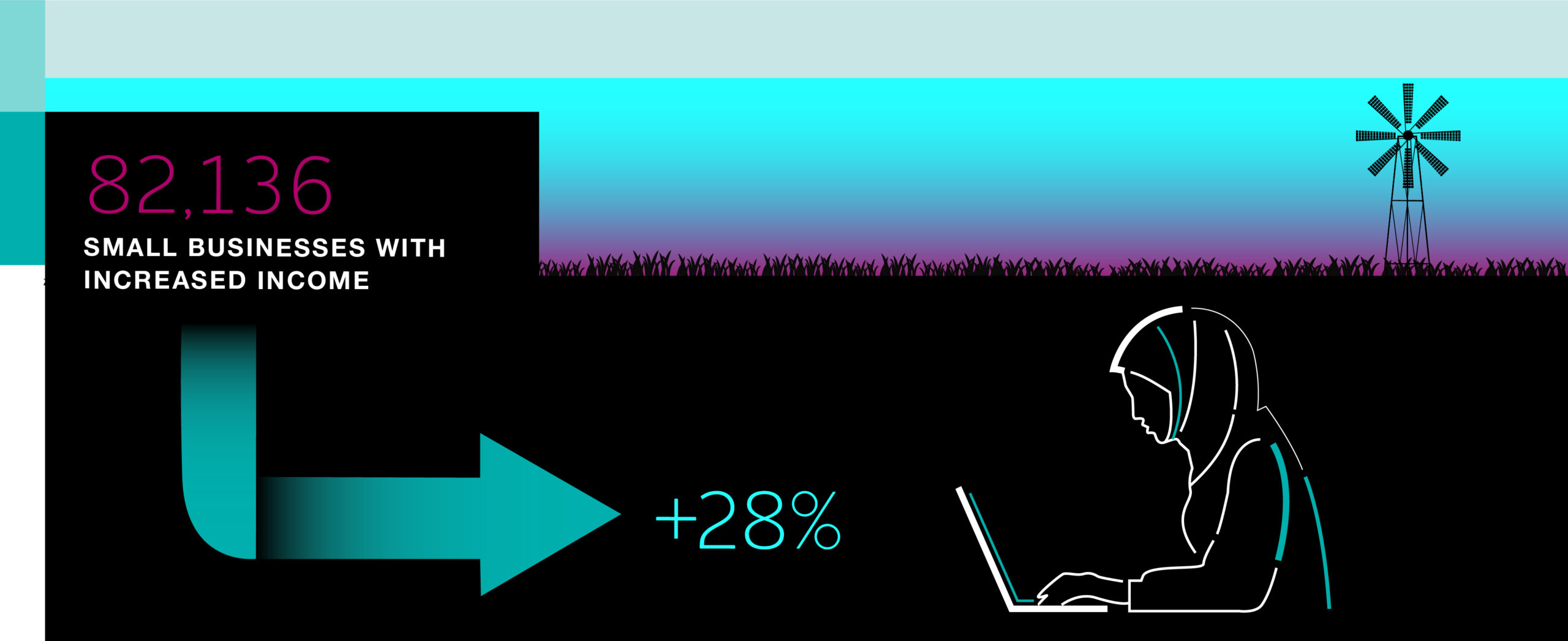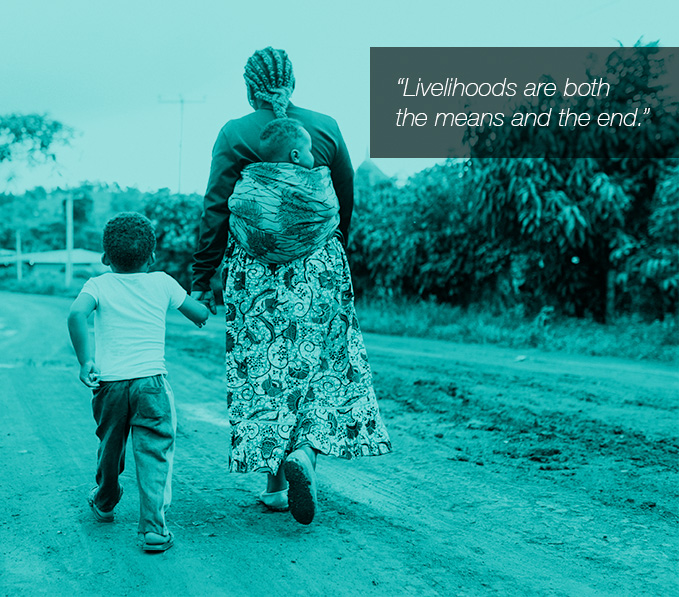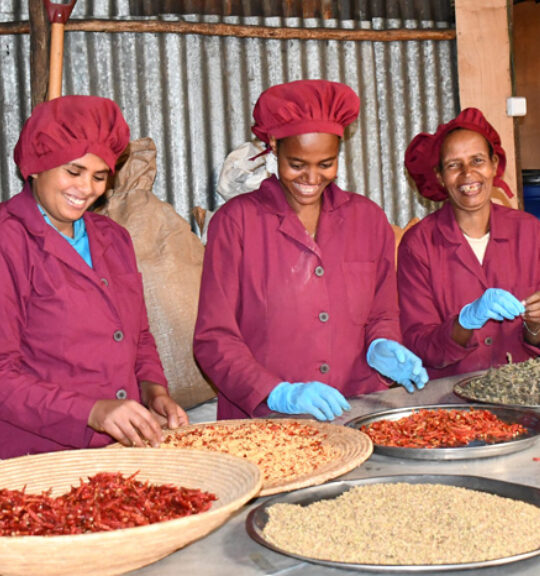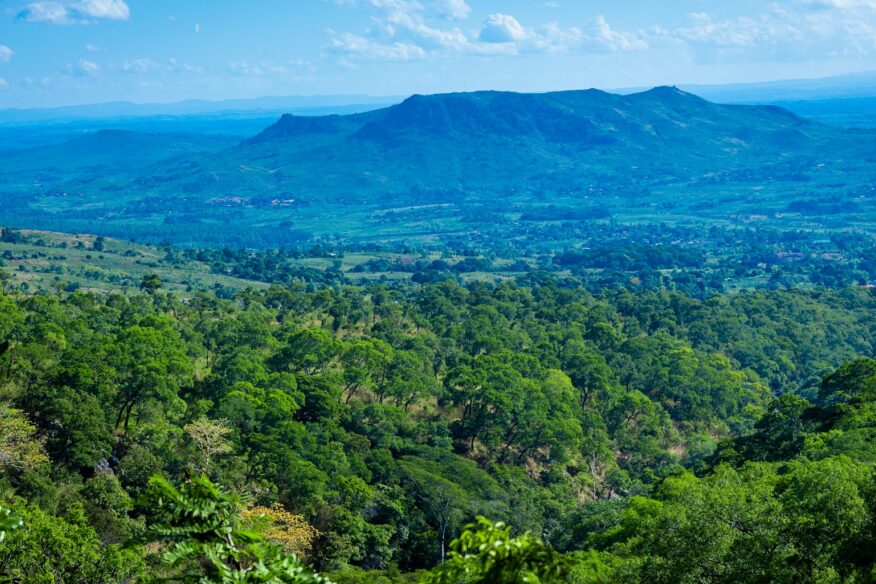Our Impact


Livelihoods are both the means and the end.
689 million people around the world live in extreme poverty. When it comes to sustainable impact, there’s no silver bullet, but an increase in income comes close. The effects of well-paid, meaningful work ripple through families, communities, and societies in a way that nothing else can, which is why the right to decent work is enshrined in Constitutions across the globe and included in the UN’s Sustainable Development Goals.
It’s also why livelihoods are at the heart of so much of what we do.
Whether in developed or developing markets, the key is to tackle the underlying issues while maintaining a practical, compassionate focus on individuals.
Supporting Home from Afar
In Australia, the Pacific Labour Facility (PLF) celebrated a major workforce milestone in January for the Pacific Australia Labour Mobility (PALM) scheme – and they did it six months early. In October of 2022, the Australian Government committed to reaching 35,000 workers by June 2023 and the program surpassed that total soon into the year.
The scheme allows eligible Australian businesses to hire workers from nine Pacific islands and Timor-Leste when there are not enough local workers available. Businesses can recruit workers for seasonal jobs for up to nine months or for longer-term roles for between one and four years in unskilled, low-skilled, and semi-skilled positions.
There are now more than 35,000 seasonal and long-term PALM scheme workers in Australia, employed across 28 industries including agriculture, food processing, accommodation and hospitality, and aged care, filling critical labour gaps by offering employers access to a pool of reliable, productive workers. The scheme allows workers to take up jobs in Australia, develop their skills, and send income home. By the end of 2022, these workers had earned approximately AU$526 million in wages and saved and remitted AU$188.5 million to family and communities back home.
With the money PALM scheme workers are earning in Australia, they are building new homes, putting kids through school and kick-starting businesses in tourism, hospitality, farming, and other sectors in the Pacific.
Supporting Smallholders
The majority of the world’s 570 million farms are smaller than 2 hectares and run by smallholder farmers. Smallholders produce about one-third of the world’s food and are an integral part of the global economy. And while many of these smallholder farmers recognise the importance of and business case for shifting to climate-smart solutions, they often do not have the resources or technology to do so.
For those smallholders that may not understand the benefits or who may be concerned about the risks of changing the way that they have farmed their land for generations, change could be off the table. But in Malawi, Feed the Future Malawi Agricultural Diversification (AgDiv) Activity has been working with smallholder farmers to explain the importance of climate-smart practices and support the transition. The team conducts field days and demonstrations to reach smallholder farmers with information on good agricultural practices such as early planting, timely weeding, and other recommended techniques.
AgDiv’s programs have been successful in expanding the demand for and availability of many agricultural technologies and helping farmers understand the value of technology adoption. With climate change comes changing weather patterns, worsening natural disasters, and even climate-motivated violence, and many farmers are taking the brunt of these effects, making it imperative to adapt to the realities of the climate crisis. AgDiv highlights that if climate smart solutions can increase production efficiencies, advance nutrition outcomes, and yield environmental improvements, then they can make a strong appeal to farmers.
In 2023 alone, AgDiv reached over 140,000 micro and small businesses in Malawi, including farmers receiving technical assistance to transition towards climate-smart practices. Change doesn’t happen overnight but work like AgDiv’s in Malawi proves that when change is done right, it creates a sustainable increase in incomes and business that will be felt for generations to come.




